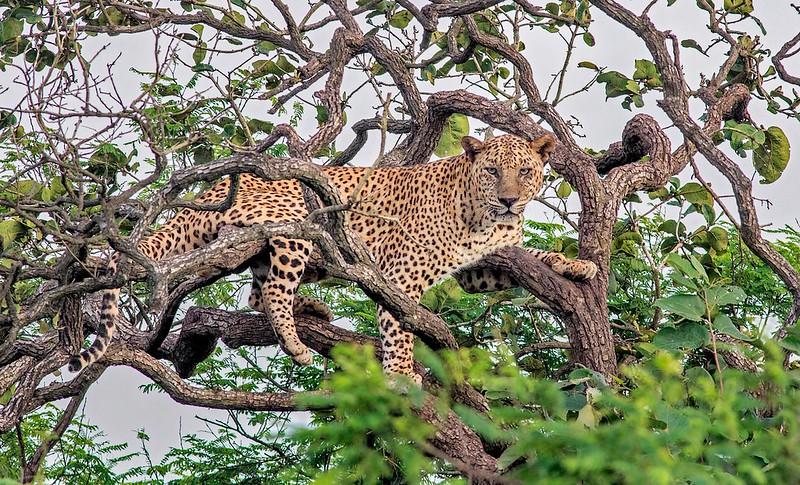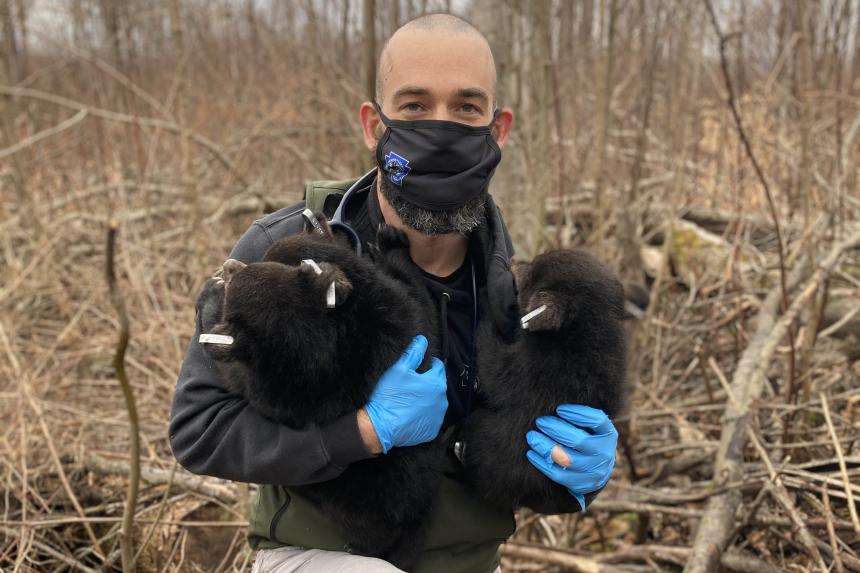February 2023

February 21, 2023
Cornell researchers have confirmed the first cases of canine distemper virus in tigers and leopards in Nepal. This is significant, as both populations are already threatened and the virus can cause fatal neurological disease.

February 19, 2023
Cornell's Dr. Laura Goodman says there's evidence that warming temperatures have already led to the emergence of a new fungal disease, Candida auris. She says that it's probably harmless for many people, but those with compromised immune systems may be at risk.

February 17, 2023
A new study led by Cornell and partners shows for the first time that leopards in Nepal are exposed to canine distemper virus, which could be contributing to increased human-leopard conflict.

News
February 15, 2023
Danielle Sosnicki was first inspired to pursue graduate training in reproductive physiology after reading about the northern white rhinoceros, a functionally extinct subspecies of the white rhinoceros. “Their story is what got me interested in trying to help critically endangered species. That’s my goal,” she says....

For Your Information
February 14, 2023
Eastern coyotes are out there—everywhere in New York. They are adaptable to living in many environments--prairies, forests, deserts, wetlands, and even cities--but open areas like prairies or deserts are where they prefer to be. Most coyotes go entirely unseen in their habitat of choice.

February 13, 2023
Chytridiomycosis has caused significant declines and extinctions of many amphibian species. In a new paper, Cornell scientists have found that an oral vaccine can stimulate an immune response and help some species fight the deadly disease.

News
February 08, 2023
Dr. Andrew Di Salvo had always been interested in wildlife and enjoyed being outdoors. He first considered a career in wildlife veterinary medicine while working as a park ranger in New York City before veterinary school....

February 06, 2023
The Cornell Wildlife Health Center's Dr. Martin Gilbert says infectious diseases present a growing conservation threat to wild species as populations become more fragmented.

February 05, 2023
Congratulations to Maggie Swift, who will be joining us as an Atkinson Center Postdoctoral Fellow! Maggie will use advanced computer modeling to simulate elephant movements in southern Africa that will make it easier to evaluate scenarios for integrative, sustainable land-use management.

February 03, 2023
A study led by Cornell researchers found that white-tailed deer – the most abundant large mammal in North America – are harboring SARS-CoV-2 variants that once widely circulated but are no longer found in humans.
